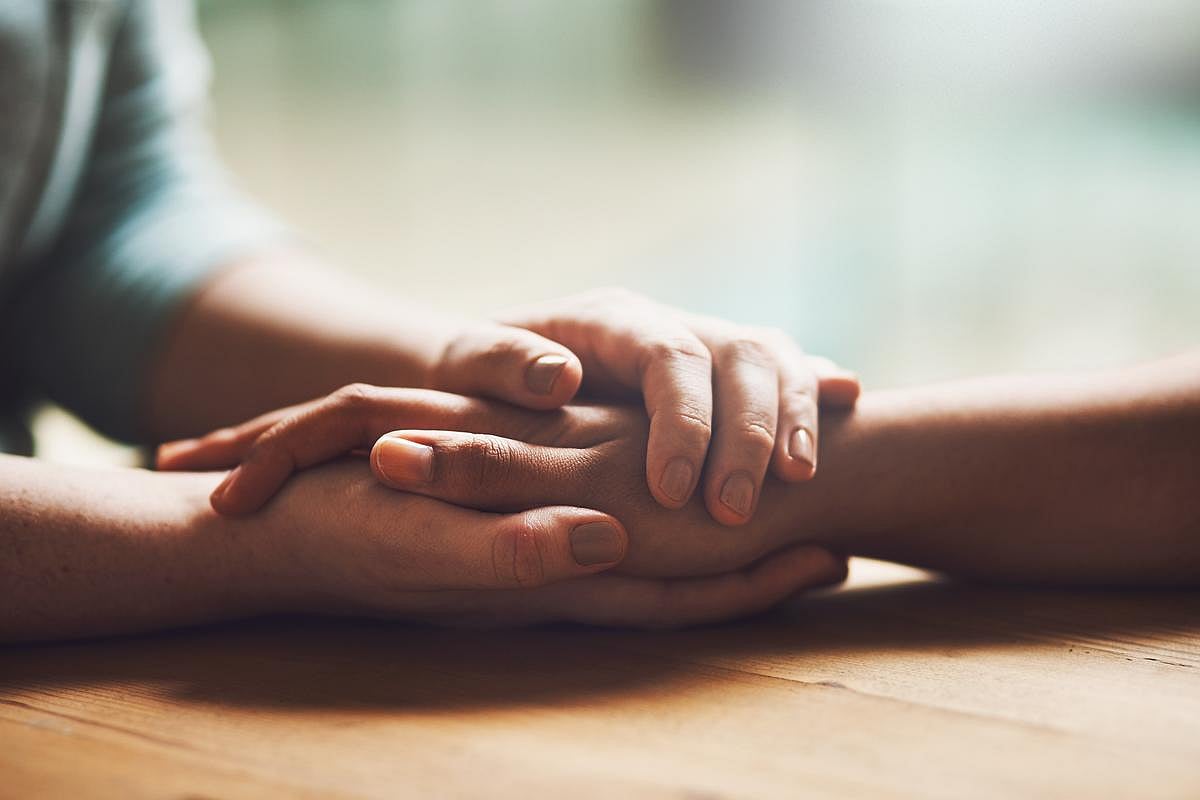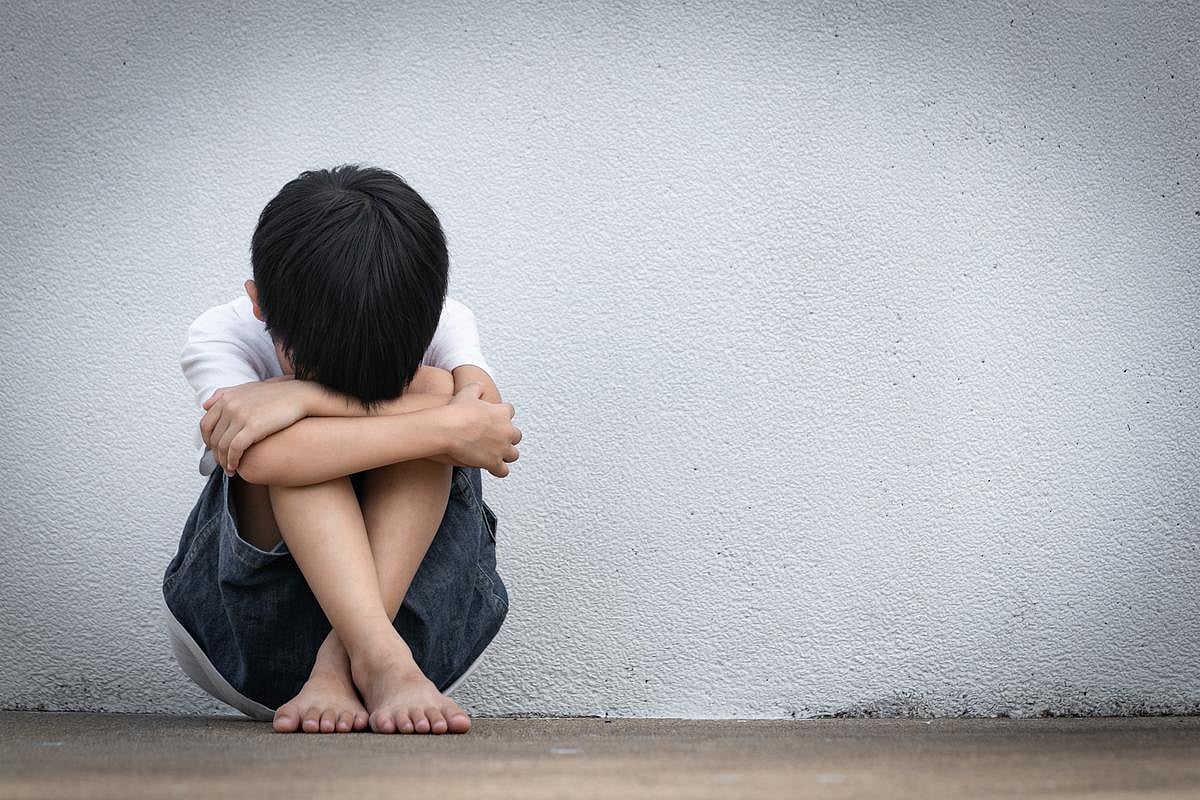Patient Resources
Get Healthy!
Results for search "Friendship".
10 Jun
Happy Family Life Linked to Better Sleep for Kids
A new study finds strong family relationships and engaged parents help tweens get better sleep.
22 May
Staying Socially Active May Slow Biological Aging and Prolong Your Life
A new study finds people who stay socially engaged as they age have a lower median biological age, healthier behaviors, and a lower risk of dying.
Health News Results - 21
Why Lending a Hand Can Boost Happiness as You Age
- I. Edwards HealthDay Reporter
- October 19, 2025
- Full Page
For older adults, friendship might be the best medicine. Researchers say that doing small favors for close friends — like offering a ride or lending a hand — can boost happiness and give people a greater sense of purpose.
A University of Michigan study found ...
Nostalgic? It's Better For Friendships, Mental Health
- HealthDay Reporter
- Dennis Thompson
- March 14, 2025
- Full Page
Nostalgia might be met by eyerolls from some, as the emotion might inspire insipid images of rose-tinted glasses, gooey sentimentality and living in a time-lost past.
But people prone to nostalgia have an edge when it comes to their health and well-being, a new study say...
Neglect Can Be as Damaging to Child Development as Abuse, in Some Ways
- HealthDay Reporter
- Dennis Thompson
- January 13, 2025
- Full Page
Simple neglect can be as damaging to a child’s social development as physical, sexual or emotional abuse.
Children whose basic needs aren’t met...
Friendships Are Especially Powerful Late in Life, Poll Says
- HealthDay Reporter
- Dennis Thompson
- December 16, 2024
- Full Page
Close friendships are incredibly important to the mental health of middle-aged folks and seniors, a new study finds.
Older adults with worse mental or physical health were twice as likely to say they don’t have any close friends, according to results from the Unive...
Why Friendships in Your Teen Years Are So Important
- HealthDay Reporter
- Dennis Thompson
- October 11, 2024
- Full Page
Friendships forged during a person’s turbulent teenage years lay the essential foundation for their happiness later in life, a new study suggests.
...Good Friendships Crucial to Young Adults' Happiness, Study Finds
- HealthDay Reporter
- Carole Tanzer Miller
- October 3, 2024
- Full Page
If you're a 20-something who is unattached, having good friends is a key to happiness, new research shows.
"The quality of your friendships is a key factor for your well-being, especially if you're single," a team led by Lisa W...
Friendships Are Not in Decline Among Americans: Study
- HealthDay Reporter
- Dennis Thompson
- July 31, 2024
- Full Page
Loneliness has been a major concern in America, particularly in the wake of the social isolation imposed by the COVID-19 pandemic.
But friendships are not in decline in the United S...
Here's 8 Habits That Could Lengthen Your Life
- HealthDay Reporter
- Cara Murez
- July 24, 2023
- Full Page
Eight healthy habits could add years to your life.
A new study of more than 700,000 U.S. veterans breaks down the habits that when adopted by middle age, can help someone live substantially longer than folks who don't have these habits.
These are the big eight:
...Social Lives Can Thrive in Walk-Friendly Neighborhoods
- HealthDay Reporter
- Cara Murez
- June 22, 2023
- Full Page
Living in a walkable neighborhood fosters socialization and helps create a strong sense of community, new research shows.
Among the active behaviors these walkable neighborhoods promote are walking for leisure or as transportation to school, work shopping or home.
How to Help Someone Dealing With Depression
- HealthDay Reporter
- Mandi Harenberg
- March 3, 2023
- Full Page
There is little that is harder than watching a loved one struggle with depression. So what can you do?
More than you might think, experts say.
First, depression is a mood disorder that can affect anyone, regardless of age, race, socioeconomic status or gender. Symp...
Skip the Texts: Face-to-Face Meetings Make College Students Happier
- HealthDay Reporter
- Alan Mozes
- August 4, 2022
- Full Page
In a world where everyone spends more and more time with eyes fixed on their phones, new research suggests young people feel happier after socializing with friends in person rather than virtually.
The conclusion is an outgrowth of nearly four years spent analyzing how so...
Even Chores, Socializing Might Lower Your Odds for Dementia
- HealthDay Reporter
- Cara Murez
- July 28, 2022
- Full Page
Your daily walk, cleaning the house and lunch with friends could together be keys to staving off dementia, according to researchers.
A new study looked at lifestyle habits...
Friends Want to Hear From You More Than You Think
- HealthDay Reporter
- Amy Norton
- July 12, 2022
- Full Page
If you've ever hesitated to text or email friends you haven't seen in a while, a new study has a reassuring message: They'll probably appreciate it more than you think.
In a series of experiments involving nearly 6,000 adults, researchers found that, in general, people u...
Being Social May Be Key to 'Sense of Purpose' as You Age
- HealthDay Reporter
- Ellie Quinlan Houghtaling
- July 12, 2022
- Full Page
Want to feel you matter after you retire? Start socializing, a new study suggests.
Researchers from Washington University in St. Louis found that positive connections with other people were associated with a sense of purposefulness in older adults.
Having a
Study Spots Key Factor in Kids' Friendships
- HealthDay Reporter
- Cara Murez
- June 30, 2022
- Full Page
While kids in a classroom are likely to be familiar with all their classmates after a short time, the children they are assigned to sit near are likely to become their closer friends, a new study suggests.
Researchers from Florida Atlantic University found that after se...
Smells Like Friendship: Similar Body Odors May Draw Folks Together
- HealthDay Reporter
- Amy Norton
- June 24, 2022
- Full Page
You and your best friend may have your noses to thank in helping bring you together, a new study suggests.
Researchers found that pairs of friends who'd just "clicked" upon meeting tended to smell more alike, compared to random pairs of strangers. What's more, a high-tec...
'You Didn't Tag Me!' Instagram Snubs Hurt, Study Confirms
- HealthDay Reporter
- Alan Mozes
- December 21, 2021
- Full Page
Think what happens online stays online? Think again.
According to new research, a social media diss can leave people feeling genuinely hurt and ostracized.
"Social media ostracism means being excluded or ignored online on social media networks like Instagram, Face...
As Holidays Return to Normal, Here's How to De-Stress
- HealthDay Reporter
- November 26, 2021
- Full Page
A return to a more normal holiday season may also mean higher stress levels, so an expert offers some coping tips.
Don't get too focused on buying the perfect presents, making the best dinner or planning the perfect party. Try to be mindful of pleasant things and moments...
Do Your Genes Up Your Odds for Alcoholism? One Factor Cuts the Risk
- HealthDay Reporter
- Alan Mozes
- September 16, 2021
- Full Page
Even when genetics and personality are working against you, having a strong network of supportive friends and family may help lower alcoholism risk, researchers say.
"Genes play an important role in alcohol use," stressed Jinni Su, an assistant professor of psychology at...
Could You Help Prevent a Suicide? Know the Warning Signs
- HealthDay Reporter
- September 12, 2021
- Full Page
Knowing the warning signs of suicide can save a life, experts say.
Suicide is the 10th leading overall cause of death in the United States, and number two among people between the ages of 10 and 34.
Most suicides result from depression. It can cause someone to feel...
Having Someone Who'll Listen May Be Good for Your Aging Brain
- HealthDay Reporter
- Robert Preidt
- August 20, 2021
- Full Page
Could the constancy of a sympathetic ear help guard your brain against the ravages of aging?
Yes, claims new research that analyzed data on nearly 2,200 American adults and found those in their 40s and 50s who didn't have someone to listen to them had a mental ("cognitiv...




















